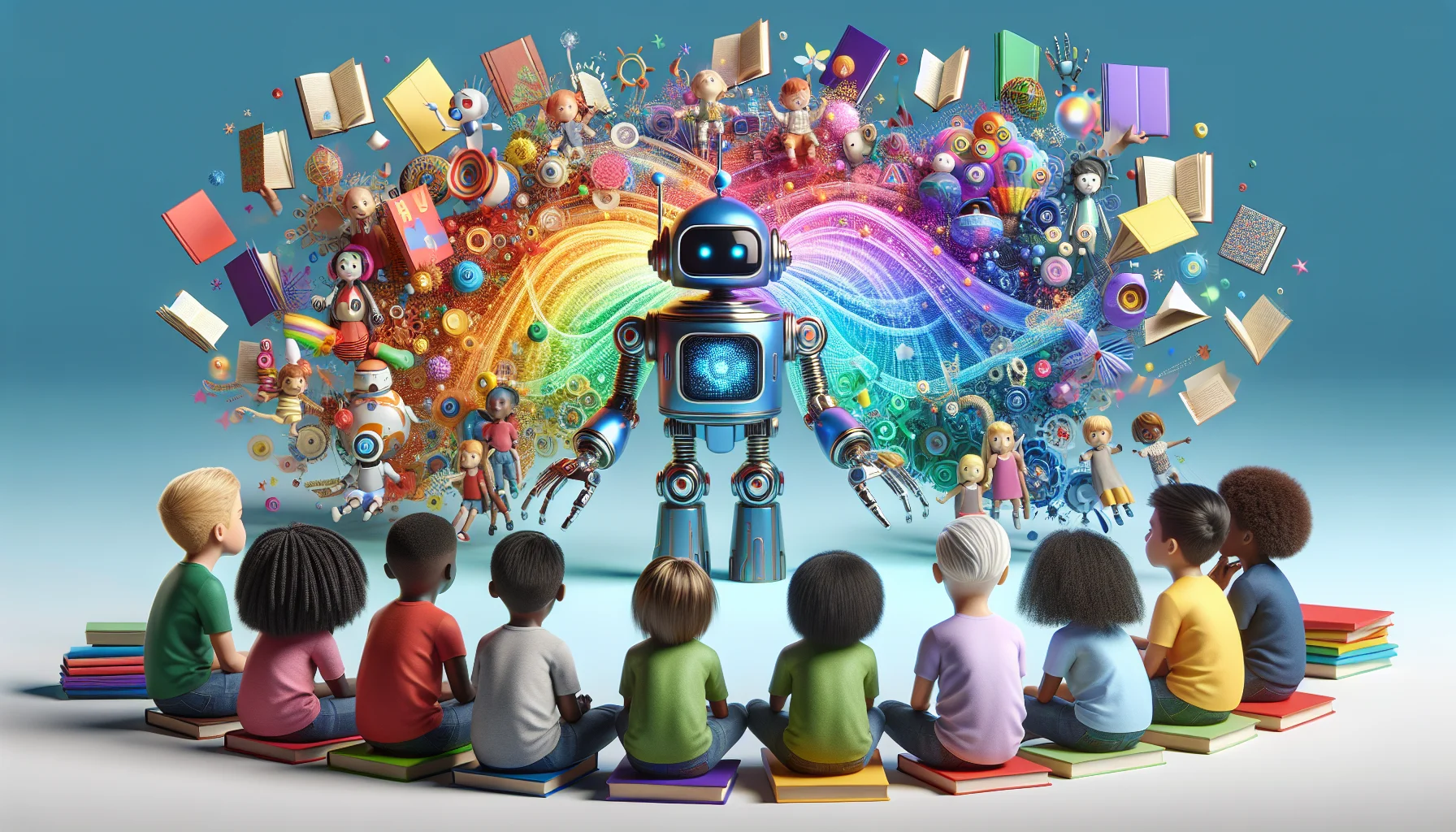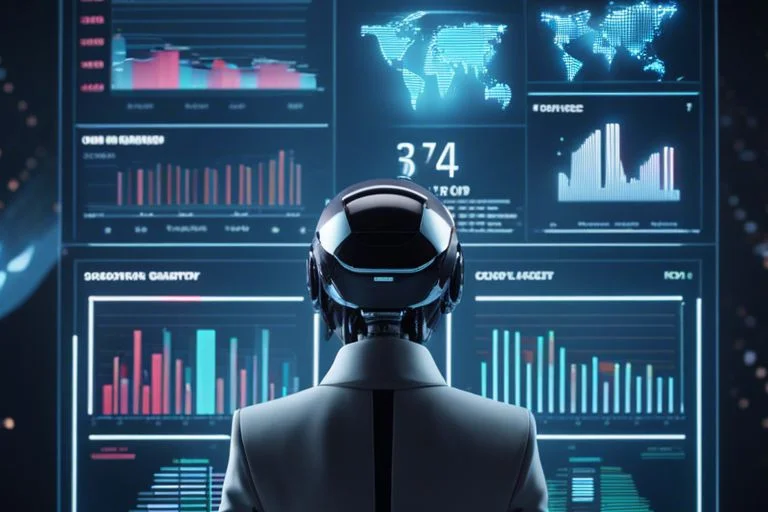In the fast-paced world of advertising, staying ahead of the competition is more crucial than ever, and artificial intelligence (AI) is emerging as a game-changer. From hyper-targeted ads to personalized content, AI is reshaping the landscape by delivering smarter, more efficient strategies.
Imagine campaigns that anticipate consumer behavior before it’s even articulated, or ads that adjust in real-time based on viewer reactions. This isn’t the future; it’s now. Brands leveraging AI can tap into unprecedented levels of data analysis and automation, crafting strategies that are not just reactive but predictive.
As AI tools become more sophisticated, marketers can expect an era of creativity backed by precision. The result? Ads that resonate more deeply, engage more effectively, and ultimately, drive greater consumer loyalty. Prepare to explore how AI is not just enhancing advertising but revolutionizing it.
Understanding AI-Powered Advertising Solutions
AI-powered advertising solutions are transforming the way marketers connect with audiences by leveraging machine learning and advanced data analytics. These technologies sift through vast amounts of consumer data to uncover insights that were previously inaccessible, enabling advertisers to tailor their messages with pinpoint accuracy.
At the heart of these solutions is the ability to automate processes that traditionally consumed valuable time and resources. For example, programmatic advertising uses AI to buy ad space in real-time, optimizing spending and ensuring ads reach the right people, at the right moment.
Personalization also takes center stage with AI. By analyzing browsing patterns, purchase history, and social media activity, AI tools can craft personalized ad experiences that speak directly to individual interests and needs. This kind of interaction not only enhances user experience but also builds brand affinity.
On top of that, AI-driven analytics provide real-time insights, allowing marketers to adjust campaigns on the fly. This agility means brands can harness immediate feedback to refine their strategies, improving outcomes significantly.
AI-powered solutions are not just about efficiency—they’re about delivering impactful, relevant advertising that captures attention and convinces. As these technologies continue to evolve, their role in strategic advertising will only grow more critical.

The Role of Machine Learning in Targeted Advertising
Machine learning is revolutionizing targeted advertising by enabling a level of audience precision that was once unimaginable. At its core, machine learning algorithms analyze data patterns and learn from each interaction, adapting to consumer behaviors in real time.
This technology excels at identifying micro-segments within broader audiences, tailoring messages with laser focus. By examining variables such as purchase history, device usage, and online behavior, machine learning refines target groups and ensures that advertising efforts are both relevant and impactful.
Furthermore, machine learning facilitates predictive modeling, allowing advertisers to anticipate future consumer actions. By continuously learning from a wealth of data, these models help businesses proact instead of react, creating strategies that align with upcoming trends and preferences.
Beyond targeting, machine learning optimizes ad delivery by determining the best channels and times to reach a specific audience, effectively maximizing ROI. With every user interaction, machine learning tools become more intelligent, driving continual improvement.
In essence, machine learning empowers advertisers with the data-driven insights needed to craft precise, personalized, and effective campaigns. As the technology advances, its contributions to the art and science of advertising will undoubtedly continue to expand.
Enhancing Customer Engagement with AI Algorithms
AI algorithms are redefining customer engagement by creating personalized and immersive experiences that resonate with users on a deeper level. They do this by analyzing customer interactions across various platforms, identifying preferences, and adapting in real time to meet consumer needs.
Sophisticated recommendation engines are one example of AI in action, offering products or content that align perfectly with individual tastes. These AI-driven suggestions not only enhance user satisfaction but also drive increased interaction and sales.
It’s also worth noting, AI algorithms are crucial for crafting dynamic content. By interpreting data like user feedback and behavioral trends, AI can generate engaging, relevant content that captivates audiences and prompts further exploration.
Chatbots, powered by AI, offer another layer of customer engagement. They provide immediate, personalized responses to inquiries, fostering a sense of connection and satisfaction that traditional methods often lack. This instant interaction not only keeps users engaged but also builds brand loyalty.
In essence, AI algorithms equip businesses with the tools to deliver tailored experiences that keep customers connected and invested. As consumers increasingly expect personalization, the role of AI in engagement strategies will only become more pivotal.
Personalization at Scale: Customizing Ad Campaigns Through AI
AI is a powerful ally in the quest for personalized advertising, enabling businesses to customize campaigns at scale without compromising on quality or efficiency. By processing vast amounts of data, AI can tailor advertising messages to resonate with individual users, no matter how large the audience.
This technology empowers marketers to move beyond generic, one-size-fits-all campaigns. With AI, ad content is dynamically adjusted based on algorithms that consider a user’s preferences, location, and past interactions. The result is communication that feels personal and engaging, fostering a stronger connection with the brand.
Alongside this, AI-driven personalization allows for adaptive campaigns that evolve with each consumer touchpoint. As new data is gathered, AI can fine-tune messages on the fly, ensuring they remain relevant and effective amidst changing consumer behaviors.
This capability to execute personalization at scale provides a competitive advantage, as consumers are more likely to respond to marketing that acknowledges their unique needs and preferences. In an era where user experience is paramount, AI-driven customized ad campaigns are transforming how brands interact with their audiences.
Measuring Success: Metrics and Analytics in AI-Driven Advertising
In the realm of AI-driven advertising, metrics and analytics provide the compass that guides strategic decision-making. With AI, marketers gain access to a wealth of data-driven insights that reveal the true impact of their campaigns, far beyond traditional metrics.
Real-time analytics powered by AI offers granular insights into consumer interactions, enabling advertisers to track performance across various channels. This clarity helps identify what resonates with audiences, allowing for swift adjustments and better resource allocation.
AI not only tracks click-through rates and conversions but also dives deeper into user engagement. By analyzing patterns in data, AI can assess consumer sentiment, brand perception, and the likelihood of future interactions, providing a holistic view of campaign effectiveness.
Predictive analytics further enhances the ability to measure success by forecasting trends and potential outcomes. These predictions help marketers plan proactively, optimizing strategies for better engagement and higher returns on investment.
With these advanced AI-powered tools, advertisers are no longer in the dark about their campaign’s performance. Instead, they are equipped with actionable insights that drive continuous improvement and ensure that advertising efforts are both measurable and meaningful.
The Future of Advertising: AI’s Impact on Marketing Strategies
As we look to the future, it’s clear that AI will continue to be a driving force in the evolution of advertising. Its ability to analyze vast datasets with precision and speed is already transforming how brands reach and engage consumers, and this is just the beginning.
The potential for AI in marketing strategies is immense. It enables businesses to not only understand their audiences better but also to predict what they will want next. This intelligence allows for more than just reactive strategies; it empowers brands to be proactive, positioning themselves ahead of consumer trends and expectations.
Furthermore, as AI technologies become more advanced, they will democratize marketing insights, making sophisticated tools accessible to businesses of all sizes. This shift will level the playing field, allowing smaller brands to compete with larger counterparts through innovative and data-driven advertising strategies.
However, this future is not without its challenges. Advertisers will need to navigate issues of privacy and data security, ensuring that AI applications are ethical and transparent. As consumers become more aware of data use, brands must build trust by balancing personalization with privacy concerns.
Ultimately, the integration of AI into marketing strategies marks a new era where creativity and technology converge. By harnessing AI’s potential, brands can create richer, more meaningful connections with their audiences, leading to sustained growth and success in an ever-changing digital landscape. The future of advertising is bright, and AI is undoubtedly its guiding star.
















